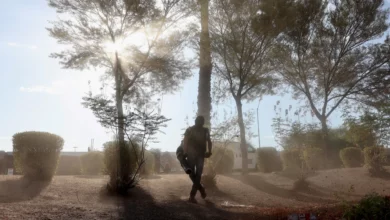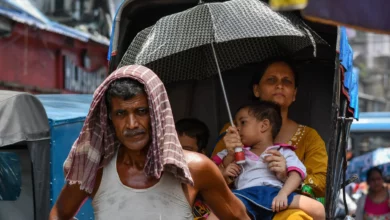Climate change activists from around the world will convene in Cochabamba, Bolivia this week for a grassroots alternative to the failed UN climate talks in Copenhagen last December.
The World People’s Conference on Climate Change and the Rights of Mother Earth, which runs until Thursday, will bring together activists, experts, and government representatives–mostly from the southern hemisphere–to discuss solutions that address the needs of communities most affected by climate change. The event is colored by a sense of urgency after the Copenhagen summit ended with a non-binding accord criticized by many for failing to set any real target for emission reductions.
“The main point of the conference is to convince developed countries to make and meet commitments to reduce emissions, and we have observed that this will not happen without pressure from civil society,” said Bolivian UN ambassador Pablo Solón in an official press release. “Those who are already suffering from global warming will have the chance to speak out.”
Bolivia, a country facing a rapid loss of glaciers due to rising global temperatures, was among those who refused to sign the accord at Copenhagen. The Bolivian government initiated the call for a people’s conference to be led by social movements in dialogue with progressive governments, grounded in a firm belief that climate change is interconnected with other social and economic injustices.
In addition to advocating for substantive emission reductions, conference organizers and participants are also pushing for climate debt repayment from over-emitting industrial powers to poorer nations suffering from the effects of global warming. The US, China, and the EU together account for over 50 percent of global carbon emissions.
The conference will include workshops on different proposals, including the establishment of a climate justice tribunal, a world referendum on climate change, and a universal declaration of the rights of Mother Earth.
Among the speakers will be Bolivian President Evo Morales who will deliver opening remarks on Tuesday, leading climate scientist James Hansen, former UN General Assembly president Miguel D’Escoto, and renowned environmental activists Bill McKibben and Vandana Shiva. Topics on the agenda include climate debt, climate refugees, problems with existing market-based solutions such as carbon trading, and the structural causes of climate change.
Organizers estimate that 15,000 people will attend from 120 different countries, although overseas participation may be hindered due to recent flight cancellations across Europe. Delegations are expected to arrive from Latin America, Asia, Africa, Europe, and North America. Middle Eastern countries, it appears, will be barely represented if not entirely absent.




